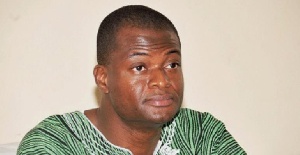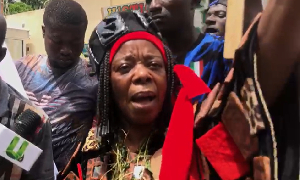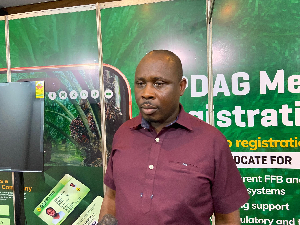Anybody who has closely followed his very public career, both academic and political, knows that Dr. Raymond Atuguba, the law lecturer of the University of Ghana, is not a scholar who is totally devoid of his own clearly stated and neatly delineated ideological biases or proclivities.
He is a dyed-in-the-wool diehard machine operative of the main opposition National Democratic Congress (NDC) and possibly one of the Spare-Tire Social Democrats.
He also served on the staff of former President John Dramani Mahama, as the latter’s Executive Secretary, shortly after a Supreme Court panel presided over by one of his relatives, Justice William Atuguba, declared the 2012 Presidential Election in favor of his soon-to-be benefactor and generous paymaster.
Indeed, I have personally stated at least once or twice on an Internet Radio Program on which I have been one of the regular panelists for a couple of years now, that the Ghana Police Service (GPS), among a host of other taxpayer-supported institutions, may well have fallen far short of the level of professionalism that it needs to be because the appointment of nearly each and every one of its Chief Constables, or Inspectors-General of Police (IGPs), can be clearly seen to be keyed or inflected by the ethnicity or ethnic identity of whoever happens to be the President or Head-of-State at any particular moment in the country’s postcolonial history.
I did not need to conduct any elaborate or extensive research in order to arrive at this conclusion. Any critical thinker and/or observer could have arrived at the same conclusion.
Well, at a law conference recently hosted by the Ghana Institute of Management and Public Administration (GIMPA), Dr. Atuguba is reported to have stated that “the last time he analyzed the work of the police[,] with the intention of drawing attention to some of their flaws, his house was besieged” (See “8 Armed Men Were Sent to Arrest Me – Raymond Atuguba” MyJoyOnline.com / Modernghana.com 2/17/18).
That he does not specifically tell us under which government or whose watch or presidency his house was militarily besieged, in a curious but unsurprising bid to curtailing his academic freedom, and to clearly intimidate him, ought to tell the critically-thinking reader that the plaintiff may not, after all, be as honest and upfront as he would have his audiences believe.
In all likelihood, the scenario that he depicted at the GIMPA conference took place under the watch of one of the Three Fourth-Republican Leaders of the Rawlings-founded and closely chaperoned National Democratic Congress (NDC), although it could very much as well have occurred under the tenure of former President John Agyekum-Kufuor, although this is very highly unlikely.
Dr. Atuguba also demonstrates his predictable disingenuousness when he observes that “Somehow, the Supreme Court lost its way after the first years and the judgments started becoming clear on [along?] the lines of party appointments.”
Actually, ever since our British colonial administrators left the shores of the newly independent Ghana, under the leadership of then-Prime Minister and, later, President Kwame Nkrumah, the judiciary, in general, and the Supreme Court, in particular, has never been afforded the sort and kind of climate that it needs to operate healthily and independently of the other two arms of democratic governance, namely, the Executive and the Legislature.
But even more significantly, were he the objective and intellectually dispassionate scholar that he would have the rest of us believe he is, Dr. Atuguba would have boldly, fearlessly and honestly observed that it was the Rawlings-Tsikata-engineered, Mafia-style summary execution of the three Akan-descended Accra High Court judges that effectively emasculated the Ghana Supreme Court as we presently know it, to the damnable extent that the judiciary, as an institution, has almost effectively become a passive and servile reflection of whichever political party happens to occupy the Flagstaff House and, before the latter, The Osu Castle.
But Chief Justice Sophia AB Akuffo makes an equally valid point when she observes that it is insufferably insulting for anybody worth the serious designation of a “scholar” to claim that in all the “100 political cases” that Dr. Atuguba claims to have meticulously researched, virtually every jurist on the apex court made decisions invariably reflective of the ruling political party whose leader appointed them to the Supreme Bench.
It is inexcusably insulting because such a conclusion presupposes that each and every member of the Supreme Court woefully lacks the moral heft and cognitive poise that ought to be their overriding guiding principles.
Opinions of Sunday, 18 February 2018
Columnist: Kwame Okoampa-Ahoofe, Jr.















